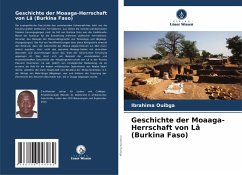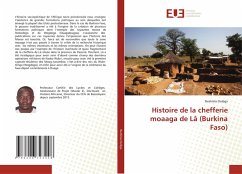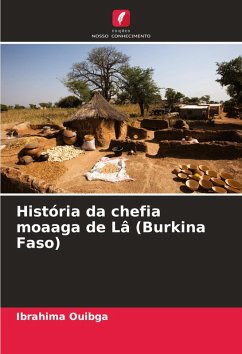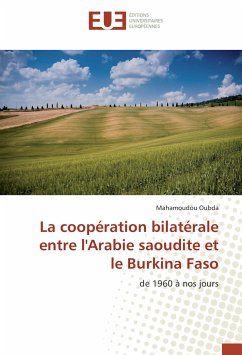
History of the moaaga chiefdom of Lâ (Burkina Faso)
Versandkostenfrei!
Versandfertig in 6-10 Tagen
45,99 €
inkl. MwSt.

PAYBACK Punkte
23 °P sammeln!
The socio-political history of pre-colonial Black Africa teaches us about the existence of major political groupings from which most post-colonial states emerged. In the case of Burkina Faso , traditional power was at the origin of the creation of several political groupings, such as the Moose kingdoms of Tenkodogo and Wogdogo (Ouagadougou). The avalanche of publications on these kingdoms gives the impression that the history of the Moose is complete. However, it has to be admitted that the entire Moaaga zone has not been subjected to the same scrutiny of historical research, with the same int...
The socio-political history of pre-colonial Black Africa teaches us about the existence of major political groupings from which most post-colonial states emerged. In the case of Burkina Faso , traditional power was at the origin of the creation of several political groupings, such as the Moose kingdoms of Tenkodogo and Wogdogo (Ouagadougou). The avalanche of publications on these kingdoms gives the impression that the history of the Moose is complete. However, it has to be admitted that the entire Moaaga zone has not been subjected to the same scrutiny of historical research, with the same intentions and the same orientations. A case in point is the incomplete and almost fragmentary history of the Lâ chiefdom in the Passoré province. However, Lâ was strategic in that it served firstly as the site of Naaba Wubri's last military operations, secondly as the first capital-residence of the Moog-nanambse, i.e. the kings of Wubr-t nga (Wogdogo), and thirdly as the origin of the false departure ceremony commemorated in Ouaga.














